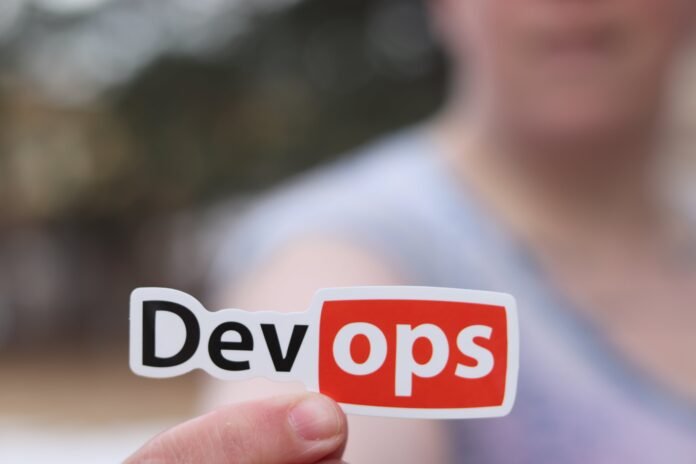Why DevOps training is required?
DevOps training is crucial for individuals and organizations seeking to adopt and implement DevOps practices effectively. DevOps, which stands for Development and Operations, is a set of principles, practices, and cultural philosophies that aim to improve collaboration and communication between development and operations teams. The primary goal of DevOps is to streamline and automate the software development and delivery processes, fostering a culture of continuous integration, continuous delivery (CI/CD), and continuous improvement. Here are several reasons why DevOps training is required:
Collaboration and Communication
DevOps emphasizes collaboration between traditionally siloed development and operations teams. Training helps individuals understand the importance of effective communication, teamwork, and shared responsibilities.
Automation Skills
DevOps relies heavily on automation to accelerate and optimize development, testing, and deployment processes. Training provides hands-on experience with popular DevOps tools and platforms, such as Jenkins, Docker, Kubernetes, Ansible, and others.
Continuous Integration and Continuous Delivery (CI/CD)
DevOps training teaches the principles and practices of CI/CD, enabling teams to integrate code changes frequently, automate testing, and deliver software to production quickly and reliably.
Efficiency and Time-to-Market:
DevOps practices aim to reduce development cycles, enhance efficiency, and shorten time-to-market for software products. Training equips individuals with the skills to implement practices that accelerate the development and deployment lifecycles.
Improved Quality
Automation and continuous testing in DevOps contribute to improved software quality. Training helps individuals understand how to implement testing strategies, automated testing frameworks, and quality assurance practices.
Infrastructure as Code (IaC)
DevOps promotes the use of Infrastructure as Code, allowing teams to manage and provision infrastructure through code. Training covers tools and practices related to IaC, such as Terraform and Ansible.
Monitoring and Logging
DevOps training includes aspects of monitoring, logging, and performance management. Individuals learn how to use tools for real-time monitoring, log analysis, and identifying performance bottlenecks.
Security Practices
Security is an integral part of DevOps. Training addresses security concerns and teaches individuals how to integrate security practices into the development and deployment pipeline.
Culture Change
DevOps is not just about tools and processes; it involves a cultural shift toward collaboration, shared goals, and continuous improvement. Training helps organizations foster a DevOps culture.
Overall, Best DevOps training in Chandigarh empowers individuals with the knowledge, skills, and mindset needed to drive organizational transformation, improve collaboration, and deliver high-quality software products efficiently. It plays a crucial role in building a workforce capable of embracing and implementing DevOps principles effectively.
What is the use of monitoring in DevOps?
Monitoring in DevOps is a critical practice that involves continuously observing and analyzing the performance and health of applications, infrastructure, and the entire IT environment. The primary goals of monitoring in DevOps include:
Early Detection of Issues:
Monitoring allows teams to detect and identify issues in the IT environment at an early stage. This early detection helps prevent potential disruptions and minimizes the impact on users.
Proactive Problem Resolution:
By continuously monitoring various metrics and logs, DevOps teams can proactively identify patterns or anomalies that may indicate potential problems. This enables teams to address issues before they escalate into critical incidents.
Optimizing Performance
Monitoring provides insights into the performance of applications and infrastructure. DevOps teams use this information to optimize resource utilization, enhance application responsiveness, and improve overall system performance.
Automation and Orchestration:
Monitoring data serves as a foundation for automation and orchestration. DevOps teams use monitoring tools to trigger automated responses based on predefined conditions, such as scaling resources, restarting services, or deploying hotfixes.
Capacity Planning
Monitoring helps in understanding resource usage patterns over time. DevOps teams can use this information for capacity planning, ensuring that the infrastructure can handle current and future workloads effectively.
Incident Response and Troubleshooting
In the event of incidents, monitoring data provides valuable insights for incident response and troubleshooting. DevOps teams can quickly pinpoint the root cause of issues, reducing mean time to resolution (MTTR).
User Experience Monitoring:
Monitoring extends to user experience, providing insights into how end-users interact with applications. This includes tracking response times, error rates, and other metrics that impact user satisfaction.
Security Monitoring:
Security is an integral part of DevOps, and monitoring plays a crucial role in detecting security incidents. Continuous monitoring helps identify unusual activities, potential breaches, and vulnerabilities that may need immediate attention.
Service Level Agreement (SLA) Compliance
Monitoring helps ensure that the IT environment meets SLAs and performance expectations. DevOps teams can track key performance indicators (KPIs) to assess whether services are meeting predefined service level objectives.
In summary, monitoring is an integral part of the DevOps lifecycle, providing real-time visibility and insights into the performance, availability, and security of applications and infrastructure. It enables DevOps training in Chandigarh teams to maintain a proactive and responsive approach to managing IT environments, fostering a culture of continuous improvement and efficient incident response.
Read more article:- Magzinerate


